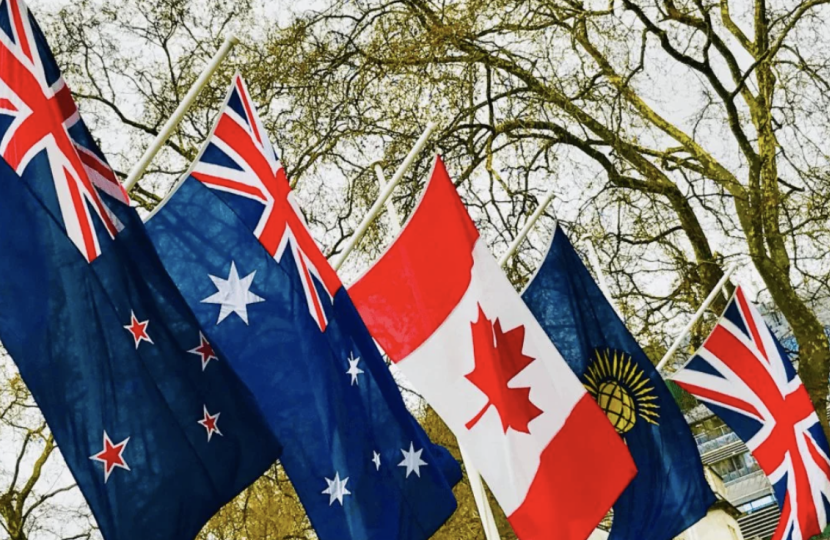
Andrew Rosindell is the MP for Romford and the Vice-President of the Conservative Friends of CANZUK), Peter Bedford is the MP for Mid Leicestershire and a Patron of the Conservative Friends of CANZUK and Elliott Malik is the Director of the Conservative Friends of CANZUK
On 15th December, the United Kingdom will accede to the Comprehensive and Progressive Agreement for Trans-Pacific Partnership (CPTPP). This is a major milestone towards establishing Global Britain. It is a huge post-Brexit win and one that the last Conservative Government can be proud to have negotiated.
It makes sense to be part of this. The CPTPP spans the Pacific Ocean; 11 countries representing 13.4 per cent of global GDP (about $13.5 trillion) and including some of our closest allies. By becoming the first non-Pacific state to accede to the Agreement, the UK has made a clear statement about its dedication to global free trade and its desire to strengthen ties with global partners.
However, the CPTPP should not be viewed in isolation. We live in an increasingly unstable world, and the power of free trade only goes so far. The UK joining the CPTPP provides the economic arm of a pivot towards the Pacific. This complements AUKUS, ABCANZ, the Five Power Defence Agreements, and the Five Eyes intelligence pacts which unite the UK with important Pacific allies.
These defensive and economic ties are unique to the UK. No other European country has access to such a strong regional network. However, whilst the CPTPP is the next step for Global Britain, we see it as a crucial step towards something else: CANZUK.
CANZUK as a concept calls for closer ties between Canada, Australia, New Zealand, and the United Kingdom. Four countries which are all Commonwealth realms through our shared monarch, have the same legal and parliamentary systems, strong military bonds, and increasing economic ties.
The CPTPP includes all the CANZUK realms. It complements the free trade agreements we have negotiated with Australia and New Zealand (and we hope soon with Canada). For CANZUK, we now have increasing bilateral FTAs and the CPTPP. The sensible next step is to deepen these ties. We need to secure an FTA with Canada. Then all the CANZUK realms will have formalised FTAs with each other.
Yet, we can go further. Agreements to facilitate freedom of goods and freedom of movement between the four realms are the obvious next steps. Starting with students and young people, we can ensure that a common purpose is developed between these countries. This would ape the existing Trans-Tasman Travel Arrangement which has fostered deep and lasting personal connections between Australia and New Zealand.
To be clear, this would be no European Union. These agreements would be bespoke, with clear safeguards. We do not believe in an ‘ever closer union’. The whole point of CANZUK is that this is a voluntary deepening of relations between four allies without the loss of independence. Crucially, the four countries are already so similar. Deepening economic ties will not risk mass population movements, nor weaken one economy at the expense of another.
These economic ties would complement the pre-existing defensive ties between our four realms. As has been highlighted, we already have agreements between the realms, but what we do not have is a bespoke overarching agreement between the four.
This would be more difficult. After all, each realm focuses on its region, and we have differing defensive policies (like the New Zealand nuclear-free zone). However, if the CANZUK realms were to increase economic ties, it would make sense to formalise CANZUK military cooperation. This is particularly the case knowing that future challenges to the four realms are coming from the Asia-Pacific region. China, Russia, and their allies are flexing their might. CANZUK presents a potent alternative to the darkness of authoritarian regimes.
The fruits of closer economic and defensive ties are clear: a global partnership spanning every continent, a CANZUK free trade area ranking as the fourth largest in GDP terms, military networks based on upholding the world order which the four realms played a central role in creating after the Second World War. All this will be underpinned by the common understanding of a shared heritage between equal partners.
It will be a long road, but CANZUK is a cornerstone of Global Britain’s future success. This is the key post-Brexit opportunity, and it is one the Conservative Party ought to embrace.
Andrew Rosindell MP, Peter Bedford MP, and Elliott Malik




